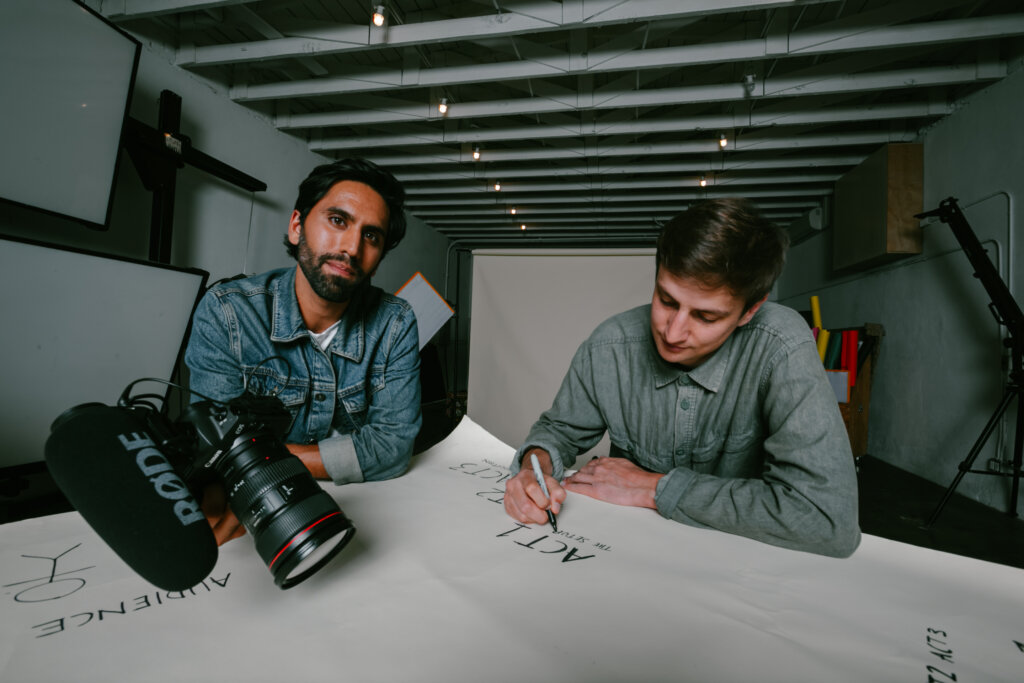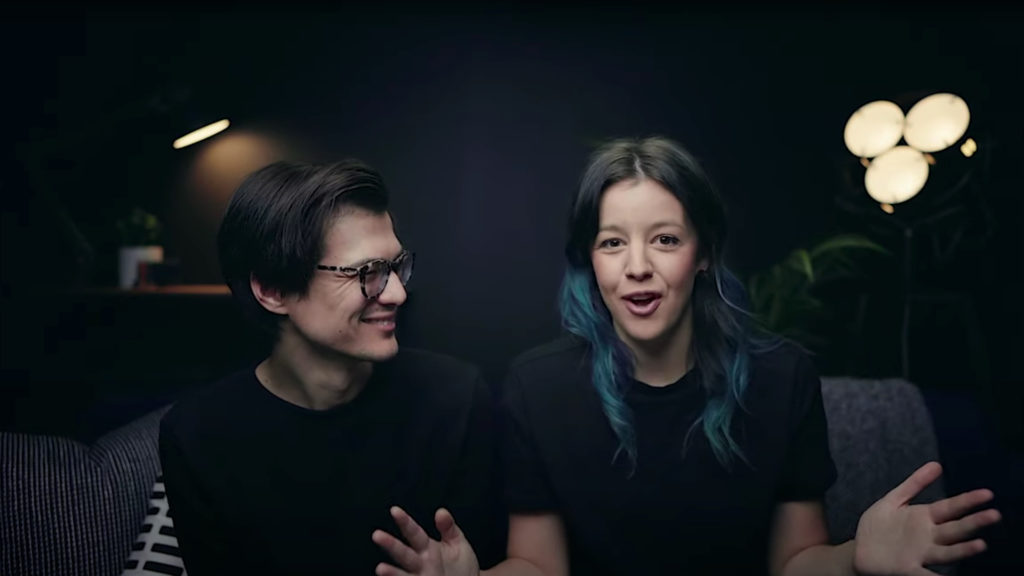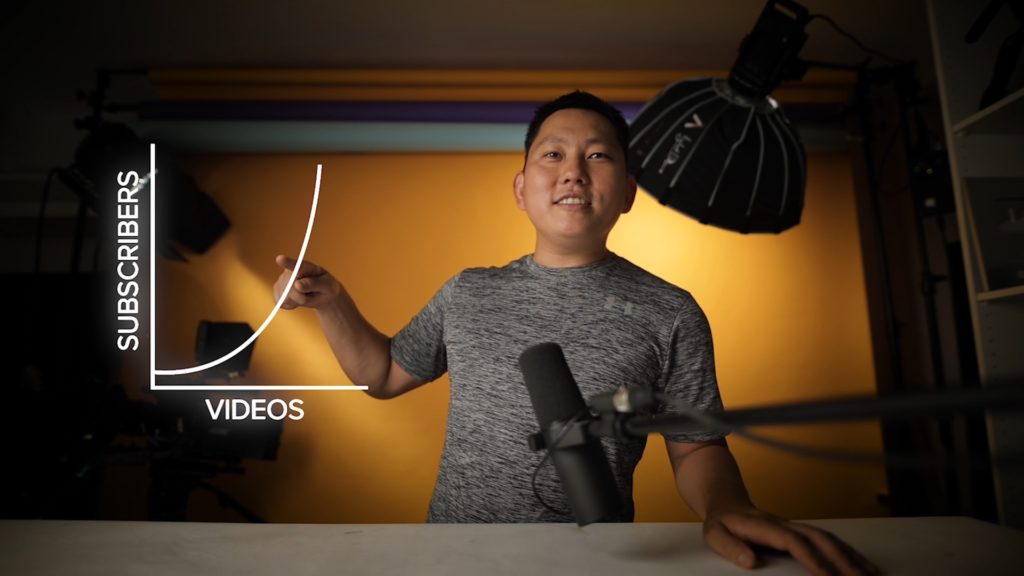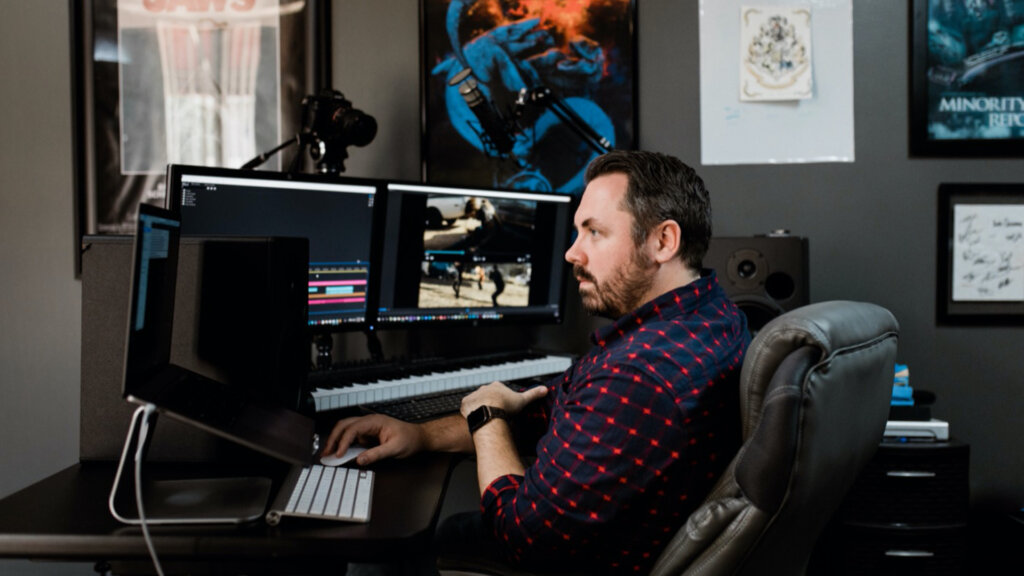Whether it’s your first foray into content creation or you’re already on your way to having a sizable audience, there’s always something to learn from other YouTubers. It’s not easy to get those 1,000,000 followers, let alone trying to get there on your own.
Many of the filmmakers we’ve spoken to over the last year learned as they went, simply because YouTube wasn’t quite the media titan it is today. But none of them got where they are today without looking to others for help. And this is your advantage. You get to take in the wisdom—and hindsight—of creators who have paved the way, making YouTube a legitimate platform for hosting vlogs, short films, cinematically-produced videos, and everything between.
Let’s revisit some key takeaways from conversations we’ve had with six true masters of YouTube success.
Know Your Audience
It may seem self-evident, but the nuances of finding who your audience is and why you’re speaking to them are what separate filmmakers with great ideas and filmmakers whose great ideas are heard.
A good way to assess whether your video will resonate with your audience is to think of a small, specific group of people when developing your concept or idea. How will your story connect with them on a person-to-person level? How will narrowing your focus give your story a chance to make more meaningful work—albeit for a potentially smaller audience—that will, over time, grow into a loyal following?
As Samir Chaudry of YouTube duo Colin + Samir puts it, “When we first started making videos, we’d think of [getting] the largest possible audience—like, how are we going to make this a viral video? But, a lot of times, we would miss the mark because we were shooting too big. Specifying it down to one audience member really helps drive home your idea.”
The added bonus of catering your story to a narrow audience is the addition of empathy for the viewer. When your viewer feels a video was made with them in mind, they’ll be hard-pressed not to pay attention. Filmmaker Satchell Drakes echoed this sentiment in our conversation, saying that “Empathy is the driving force of communication—you begin everything in the shoes of the people you’re talking to.”
Hear more from Colin + Samir on storytelling in their episode of YouTube Masters.

Developing the Story
The initial planning phase of a video is where you set yourself up for success. If you’re just beginning, Ryan Connolly of Film Riot suggests to step back and ask yourself what you want to get out of it in the long run. Will it be a series? A one-off? If it’s a series, how long will it go on? If it’s a one-off, are you making it because you’re passionate about it, or because you’re wanting views or chasing trends? Finding the answers to those questions will, in turn, help you find the voice for your story.
“The biggest mistake that filmmakers make, is turning on a camera before writing their story.”
Samir Chaudry
After you find your voice, you’ve got to find your story. There’s a new trend every day you can mimic to get quick views, but that’s not going to yield loyalty. And if we’re being honest, it probably won’t bring much creative fulfillment either. If you’re absolutely hitting the wall, and can’t think of a fresh way to tell a story, photography/videography duo Becki + Chris shared one of their most effective tricks: take inspiration from your own life. Share something you’ve actually experienced. Odds are, viewers will click—pun intended—with your story when it’s rooted in honest emotion.
Another key to success during this phase is perfecting the duration of your content. Don’t be afraid to ask yourself if your film needs to be as long as it is. Like the one-of-a-kind Potato Jet told us, “You have to become a timeline minimalist. You have to say, ‘That is an essential. This is an essential.’ And everything else goes.”
“You want to ask yourself, ‘What is the overall theme? What am I trying to communicate to the viewer?’ And then, select your music, your pacing, and your editing style based off of that.”
Iz Harris, Travel Filmmaker
Thanks to today’s media landscape, attention spans are shortening. The window of opportunity to draw viewers in, and keep their attention, continues to close. The common refrain we’ve heard from seasoned pros is that you should start with more compressed lengths. Get the hook of the story right off the bat, and consider expanding after you’ve built a loyal viewer base.
Hear more from Becki + Chris on developing your story in their episode of YouTube Masters.

Keep Delivering
As is the case with anything in life, consistency is key. You’ve got to keep the content coming. But for people to spend time watching your video over the infinite amount of others to click on, they’ll also be looking for something to relate to or with. Whether you’re hosting a series, or using fictional characters, that “thing” they relate with needs to be a constant presence in the content. That’s what makes a film good.
Potato Jet believes that, in the early phase of your channel, “it’s better to focus on making good videos. Once you get that down, you’ll be able to make good videos, frequently.” Ultimately, this is your vision. If you have a story worth telling, don’t hold back. Set yourself up for success by creating good videos and finding a release schedule that allows you to publish good videos, consistently.
The team behind Yes Theory—and their 6 million subscribers—offered this advice, “If you’re starting off creatively right now, and you don’t have an audience, you are actually in the best-case scenario. Go out there, find inspiration around you, and make as much art as you possibly can. And in the process of finding your own voice, you’ll also find a community that resonates with that voice.”
Hear more about consistency from Potato Jet in his episode of YouTube Masters.

Learn to Welcome Criticism
Anyone who’s ever shared anything online—or even spent one iota of time reading comments on the internet—already knows what we’re about to get into. It’s the harsh reality of the medium: anyone and everyone can pile negativity onto your work in the comments. Often times, it’s not even constructive.
Here’s what Ryan Connolly had to say: “Over the 11 years of our YouTube career, we’ve had some really, really horrible comments thrown our way, including dismissive ones, which are some of the worst. When they just dismiss your work as an artist — that’s tough.” At the end of the day, find a way to block out those dismissive comments. If you can’t separate pure negativity from helpful feedback, it will completely stunt your growth.
“You have to be able to say ‘This is just a hate comment.’ They are just commenting to hate.’ And then you have people that genuinely say ‘Hey, I think your video can actually do better if you do this.’ And you have to be open to it.”
Potato Jet
One strategy to grow in the area of receiving feedback is to be as transparent as possible, up front. Satchell Drakes says, “If you’re straight-forward about your content, you can be straight-forward about asking for likes, subscribes, and bell clicks and people will take you on it.” Even better, show your work to people you trust and respect. Get their thoughts, and go refine your work some more.
When you feel feedback is genuine, it’s crucial to pay close attention. Use it to your advantage: it’s a transcript of what viewers are thinking or feeling while watching what you’ve shot. You’ll find the end result will be much better.
Hear more advice on receiving feedback from Ryan Connolly in his episode of YouTube Masters.

If You Love Doing It, Keep Doing It
Ammar Kandil of Yes Theory is all about building a community. That’s why he, along with the rest of the team, are where they are today in the world of content creation. Iz Harriz is all about creating films that capture experiences, making viewers feel as if they’re traveling the world with her. Potato Jet is all about creating as much engaging content as humanly possible—and entertaining us all at the same time.
It’s going to be hard to get millions of viewers, and even more difficult to gain subscribers. Each of these creators are candid about the challenges faced along the way. But they all have a deeply-rooted passion for what they do. To be successful like they are, you have to know why you’re setting out on this journey. You have to truly love your ‘why’.
“It’s really f***ing hard. It’s a marathon, it is absolutely not a sprint. And at first, maybe it’s fun. You’re obsessed with this thing, and it’s exciting, it’s new, but if you’re doing something that’s weekly, even bi-weekly, or even monthly, and you have the rest of your life going on—especially if you have another job and you’re trying to get this going like I did in the beginning — it can be really difficult.”
Ryan Connolly
The payoff for pushing through the rough patches is the potential to make what you love become what you do for a living. Keep going, creating, refining, and—most of all—growing as a person through your work. And, have some fun while you’re at it.
For a deeper dive into YouTube success, watch Season One of YouTube Masters.

















































































